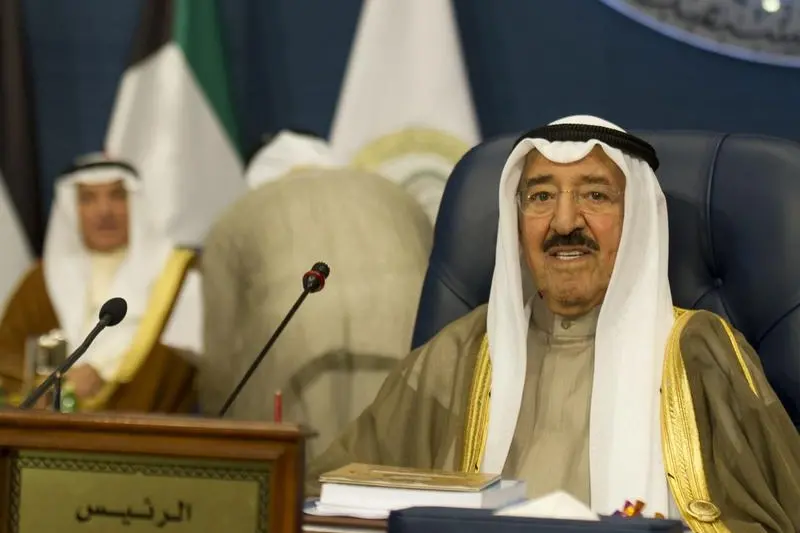PHOTO
KUWAIT, Jan 28 (Reuters) - Kuwait's finance ministry said on Thursday that the Gulf oil exporter's 2016-17 draft budget forecasts a deficit of 12.2 billion dinar ($40.2 billion), nearly 50 percent higher than the previous year, due to falling crude prices.
The ministry said in a statement that expected revenues will be 7.4 billion dinars while expenditures are expected to be 18.9 billion dinars, a drop of 1.6 percent from a year earlier.
The deficit for the fiscal year, which runs from April 1 to end of March, includes 0.7 billion dinars contribution to the Generations Fund, a nest egg for when oil supplies diminish or the economy suffers other shocks.
Kuwait's emir, Sheikh Sabah al-Ahmed al-Sabah, last week called for budget cuts and better management of spending to cope with declining revenues due to lower oil prices.
Kuwaiti crude prices dropped to around $19.50 a barrel on Jan. 21, but have since rebounded and stood around $23.34 on Thursday.
The ministry said revenues would cover only 71 percent of state salaries and associated costs, which are estimated at 10.4 billion dinars.
The budget provides for 2.9 billion dinars for state subsidies, while capital expenditures are set at 3.3 billion dinars or 17 percent of budget.
The statement did not say how the deficit would be financed but the government is likely to resort to borrowing from state reserve funds.
Finance Minister Anas al-Saleh said earlier this week that he expected the price of oil for the 2016/17 budget to be set at around $25 a barrel.
The 2015-16 state budget, which was approved by parliament last July, envisaged a deficit of 8.18 billion dinars ($27.0 billion) - nearly half of total spending.
($1 = 0.3034 Kuwaiti dinars)
(Reporting by Ahmed Hagagy, writing by Sami Aboudi; Editing by Toby Chopra) ((Sami.Aboudi@thomsonreuters.com; +97143918301;))
The ministry said in a statement that expected revenues will be 7.4 billion dinars while expenditures are expected to be 18.9 billion dinars, a drop of 1.6 percent from a year earlier.
The deficit for the fiscal year, which runs from April 1 to end of March, includes 0.7 billion dinars contribution to the Generations Fund, a nest egg for when oil supplies diminish or the economy suffers other shocks.
Kuwait's emir, Sheikh Sabah al-Ahmed al-Sabah, last week called for budget cuts and better management of spending to cope with declining revenues due to lower oil prices.
Kuwaiti crude prices dropped to around $19.50 a barrel on Jan. 21, but have since rebounded and stood around $23.34 on Thursday.
The ministry said revenues would cover only 71 percent of state salaries and associated costs, which are estimated at 10.4 billion dinars.
The budget provides for 2.9 billion dinars for state subsidies, while capital expenditures are set at 3.3 billion dinars or 17 percent of budget.
The statement did not say how the deficit would be financed but the government is likely to resort to borrowing from state reserve funds.
Finance Minister Anas al-Saleh said earlier this week that he expected the price of oil for the 2016/17 budget to be set at around $25 a barrel.
The 2015-16 state budget, which was approved by parliament last July, envisaged a deficit of 8.18 billion dinars ($27.0 billion) - nearly half of total spending.
($1 = 0.3034 Kuwaiti dinars)
(Reporting by Ahmed Hagagy, writing by Sami Aboudi; Editing by Toby Chopra) ((Sami.Aboudi@thomsonreuters.com; +97143918301;))





















